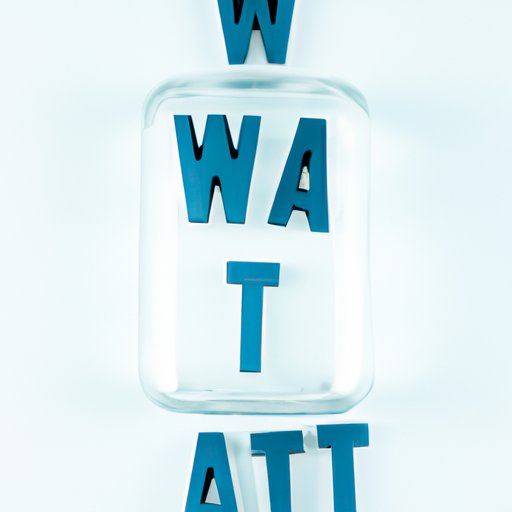
I. Introduction
Staying hydrated is an essential part of a healthy lifestyle. However, many people struggle to drink enough water throughout the day. In this article, we will explore the importance of hydration, how much water you should drink, and tips for making water more enjoyable. We will also discuss the benefits of drinking enough water during exercise and debunk common myths about hydration.
II. The Importance of Hydration
Water is essential for many bodily functions, including regulating body temperature, delivering nutrients to cells, and removing waste products. Dehydration occurs when your body loses more water than it takes in, and can lead to symptoms such as headaches, fatigue, and dizziness.
Drinking enough water has many health benefits, including:
- Maintaining healthy skin
- Supporting kidney function
- Reducing the risk of constipation and digestive issues
- Boosting energy levels and brain function
It’s important to stay hydrated to avoid the consequences of dehydration, such as decreased cognitive function and increased risk of heatstroke.
III. How Much Water You Should Drink and When
According to the National Academies of Sciences, Engineering, and Medicine, men should drink about 3.7 liters (125 ounces) of water per day, while women should drink about 2.7 liters (91 ounces) per day. However, your individual water requirements may vary depending on your activity level, climate, and overall health.
The best times to drink water are throughout the day, particularly in the morning and before meals. Drinking water before meals can also help reduce appetite and promote weight loss.
IV. Tips for Making Water More Enjoyable
If you struggle to drink enough water because of its taste, there are many ways to make water more enjoyable:
- Adding lemon or lime juice for a citrus flavor
- Infusing water with fruits like strawberries, cucumber, or mint
- Trying sparkling water or a flavored mineral water
- Drinking herbal tea or coconut water as an alternative
By incorporating these tips, you can enjoy the benefits of hydration without getting bored of plain water.
V. How to Keep Track of Your Water Intake
It can be helpful to track your daily water intake to ensure you’re meeting your hydration goals. You can track your water intake by:
- Using a water bottle with measurements to keep track of the amount you’ve consumed
- Logging your water intake in a journal or an app
- Setting reminders throughout the day to drink more water
By tracking your water intake, you can ensure you’re drinking enough water to stay hydrated.
VI. The Importance of Drinking Water During Exercise
When you exercise, it’s important to drink enough water to replace the fluids lost through sweat. Staying hydrated during physical activity has many benefits, such as:
- Reducing the risk of heat exhaustion and heatstroke
- Improving endurance and performance
- Maintaining electrolyte balance to prevent muscle cramping
The amount of water you should drink during exercise depends on the intensity and duration of your workout. As a general rule, aim to drink about 17-20 ounces of water 2-3 hours before exercising and 7-10 ounces every 10-20 minutes during exercise.
VII. Debunking Common Myths About Drinking Water
There are many myths about drinking water that can be confusing. Here are a few common myths and misconceptions:
- Cold water is not unhealthy to drink, and there is no evidence that it causes health problems.
- Tap water can be just as safe and healthy as bottled water, and is regulated by the Environmental Protection Agency (EPA).
- There is no evidence that drinking too much water is harmful, although it can lead to discomfort or electrolyte imbalances.
- Coffee and tea can contribute to your daily water intake, but caffeinated drinks like soda and energy drinks can actually dehydrate you.
By understanding the facts about drinking water, you can make informed decisions to stay hydrated.
VIII. Conclusion
Drinking enough water is essential for maintaining optimal health and wellness. By understanding the importance of hydration, how much water you should drink, and tips for making water more enjoyable, you can stay hydrated throughout the day. Tracking your water intake and drinking enough water during exercise can also help you stay on track with your hydration goals. Remember to prioritize water as a key part of your healthy lifestyle for optimal health and wellness.





